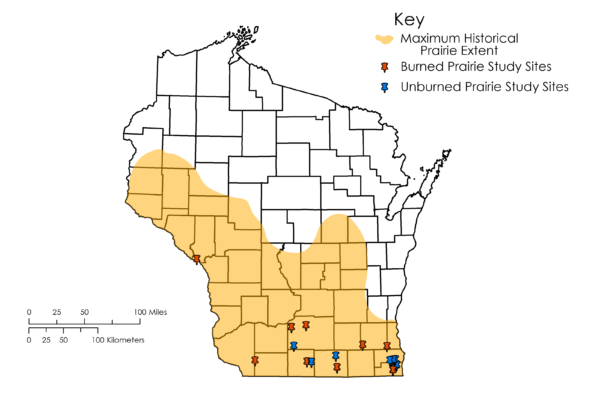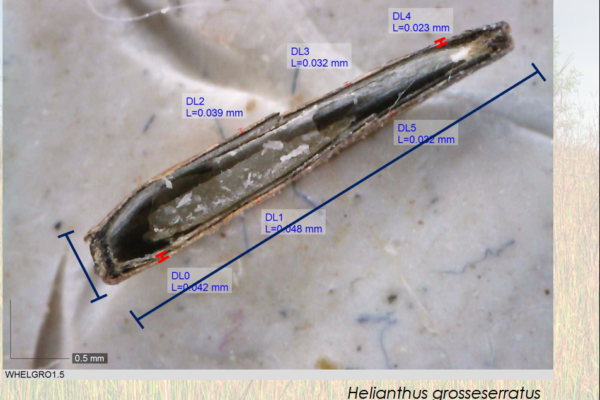What led you to your thesis topic?
I've always had an interest in ecology, and as a geography and cartography/GIS student I'm certainly into spatial analysis, so I wanted to combine the two somehow. Taking Professor Erika Marin-Spiotta's biogeography course (GEOG 338) set the stage for that interest.
What were your research questions?
I wanted to know if the size and fire history of prairie remnants played a role in which seed functional traits were best adapted to the current ecosystem, lending insight as to why the plants present today are the ones successful in growing and reproducing.
What were your research methods?
Being a physical science topic, my project was mostly quantitative with some qualitative interviewing of land managers. Much of my analysis was of correlation between seed traits and the size and fire regime of prairies. I cut, mounted, and measured hundreds of seeds under an electronic microscope to generate my averages, as well as studied 1950s aerial photos in order to delineate historical prairie versus non-prairie. The seed work could be especially dull at times, but when you turn the corner from research to analysis and conclusions, it can be a pretty exciting.
What were your research findings?
Prairie patch size alone was not a significant contributor to its current makeup, but rather that fire history was key. In terms of land-management implications, this means removing the stigma of controlled burning and properly teaching land owners to use this ecological tool.
How did prior classes and research experiences prepare you for this project?
I was fortunate to participate in the Research Experience for Undergraduates (REU) program the summer before my junior year, which was essentially a thesis boot camp in the best way possible. It's full-time and paid over the course of a summer and consists of loads of research, some lectures, a presentation, and a final paper. You also generally have a cohort of other students from around the country, so it's just a really neat experience overall. Prior classes are also key, however, in helping you decide what you want your topic to be. Completing a thesis is a very long project, and you want to make sure it's on a subject that you will enjoy working on day in and day out.
How did you get interested in research?
I feel a sense of accomplishment with problem-solving and exploring new ideas, and research is essentially that - albeit very long-term and often several steps below the ultimate end goal. While it's not the place for instant gratification, the culmination of my project was gratifying on another level.

